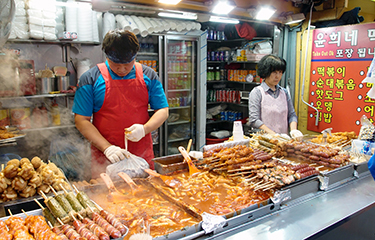Governments across Asia are scrambling to assuage public concerns about the safety of seafood following Japan’s release of radioactive wastewater from the damaged Fukushima Daiichi Nuclear Power Station.
Numerous Asian countries restricted imports of Japanese seafood following the 24 August release, despite assurances from United Nations International Atomic Energy Agency that the release would not pose a safety risk. China imposed a full ban on all seafood from Japan the day after the release.
“The ocean is the common property of all mankind, and the forcible initiation of the discharge of Fukushima-contaminated water into the ocean is an extremely selfish and irresponsible act that disregards the international public interest,” the Chinese Foreign Ministry said in a statement.
A hashtag about the release received more than 800 million views on the Chinese social media platform Weibo within 24 hours, with many commentors calling for a total ban on all Japanese products in protest of the release, according to CNN. Shanghai food safety officials conducted a surprise raid of supermarkets and Japanese grocery stores on 24 August checking for seafood originating from Fukushima, but authorities found no violations, according to the Shanghai Oriental Press.
Hong Kong also announced import restrictions on Japanese seafood products after the release.
While China is Japan’s largest seafood export market, worth USD 357.4 million (EUR 328.5 million) in 2022, Japan’s seafood exports to China have been waning in recent years, down 3.7 percent in 2022 and 12 percent year to date through July 2023. Seafood accounted for just 0.17 percent of Japan’s exports by value in 2022.
“The trade relationship – especially trade in goods – remains important, but Japan is diversifying away from the Chinese market for commercial and risk-management reasons, even as China focuses more on domestic production and consumption,” National University of Singapore Associate Professor of Political Science Chong Jia Ian told the South China Morning Post. “Both China and Japan may be less key for each other over time.”
Rabobank Senior Global Seafood Specialist Gorjan Nikolik said the ban won’t make much of a difference in terms of regional or global trade.
"It's not going to make many ripples in the seafood sector," Nikolik told Bloomberg. "Japan is not a relevant exporter."
However, representatives of China’s seafood industry are more concerned that the furor will result in an overall drop in consumption of seafood across the country and region.
“It will definitely have an impact on the fishery and aquaculture industry. Some domestic companies will be affected as well,” a China Aquatic Products Processing and Marketing Alliance staff member, who declined to be named, told the South China Morning Post. “According to what I’ve heard … many people won’t eat seafood, at least in the short term. It’s a dangerous sign for the industry if such a mentality were to be widespread.”
Suzhou, China-based consulting firm BRIC Agricultural Information Technology said the impact on consumption will be far-reaching.
“Public willingness to consume aquatic products may be affected,” it said. “Traffic in seafood markets in coastal cities could drop, while sales of such products will slump, along with price cuts.”
U.S. leaders have issued statements backing the release, with U.S. Ambassador to Japan Rahm Emmanuel pledging to visit Fukushima and eat local seafood at a restaurant there, with the goal of providing assurance that fish caught in the region are safe to eat, according to Fortune.
In South Korea, the country’s president, Yoon Suk Yeol, ate sushi on 28 August to provide public assurance the local seafood supply is safe, according to Reuters. Yeol has stated South Korea’s partial ban of seafood from 10 Japanese products is enough to protect South Korean consumers from any potential radioactive contamination. The executive office has launched a ...
Photo courtesy of Chen WS/Shutterstock








